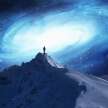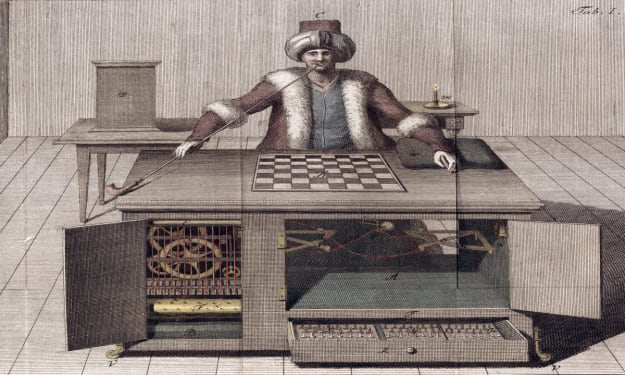The Great Discoveries
Pioneers Who Shaped the World through Exploration

Throughout history, bold explorers have embarked on extraordinary journeys, venturing into the unknown and making groundbreaking discoveries that have shaped our understanding of the world. These intrepid pioneers braved treacherous seas, unforgiving terrains, and harsh conditions in search of new lands, knowledge, and resources. In this article, we celebrate the great discoveries and the remarkable individuals who, through their exploration, expanded our horizons and forever altered the course of history.
Christopher Columbus, an Italian explorer sailing under the Spanish flag, is renowned for his pivotal role in the discovery of the Americas. In 1492, he set sail westward, seeking a new route to Asia but instead stumbled upon the islands of the Caribbean. Columbus's voyages opened up new trade routes and initiated an era of European exploration and colonization in the Western Hemisphere. While his legacy is not without controversy, his daring expeditions forever transformed the global map and connected diverse civilizations.
Captain James Cook, a British explorer and navigator, undertook several expeditions during the 18th century, becoming one of the greatest explorers in history. He meticulously charted vast areas of the Pacific Ocean, including the east coast of Australia and the islands of New Zealand. Cook's scientific approach, accurate mapping, and interactions with indigenous peoples contributed significantly to our understanding of Pacific geography, cultures, and natural history. His expeditions laid the foundation for future scientific exploration and colonization in the region.
Ibn Battuta, a Moroccan explorer, embarked on an epic journey in the 14th century, covering an astounding 75,000 miles across Africa, Asia, and Europe. His travelogue, the "Rihla," provides valuable insights into the diverse societies, customs, and political landscapes of the medieval world. Ibn Battuta's exploration not only contributed to geographic knowledge but also fostered cultural exchange and understanding between different civilizations. His adventurous spirit and thirst for knowledge serve as an inspiration for future generations of explorers.
Roald Amundsen, a Norwegian polar explorer, was the first person to reach both the North and South Poles. In 1911, he led a successful expedition to the South Pole, beating his rival Robert Falcon Scott. Amundsen's meticulous planning, adaptability, and mastery of polar survival techniques enabled him to achieve this monumental feat. His triumphs in polar exploration not only advanced scientific understanding but also demonstrated the indomitable human spirit in the face of extreme adversity.
While not a traditional explorer, Marie Curie, a Polish-born physicist and chemist, embarked on a remarkable exploration of the invisible realms of radioactivity. Her groundbreaking research and discoveries led to the isolation of radium and polonium, revolutionizing our understanding of atomic physics. Curie's scientific exploration laid the foundation for future advancements in medicine, energy, and nuclear science, earning her two Nobel Prizes and establishing her as one of the most influential scientists in history.
Zheng He, a Chinese admiral and diplomat, led several ambitious maritime expeditions in the early 15th century, decades before the European Age of Exploration. Commanding massive fleets of ships, Zheng He explored the Indian Ocean, reaching as far as East Africa. His voyages aimed to establish trade networks, enhance diplomatic relations, and project China's naval power. Zheng He's expeditions showcased China's technological prowess and cultural influence, leaving a lasting impact on the regions he visited and fostering maritime connections between civilizations.
Alexander von Humboldt, a German naturalist and explorer, embarked on a monumental scientific expedition in the late 18th and early 19th centuries. His journey through South America, known as the Humboldt Expedition, involved meticulous scientific observations and measurements of the continent's geography, climate, flora, and fauna. Humboldt's pioneering work revolutionized the field of physical geography and laid the foundation for modern environmental science. His holistic approach to exploration, emphasizing the interconnectedness of nature, paved the way for future scientific expeditions and the study of ecosystems worldwide.
Jacques Cousteau, a French naval officer, explorer, and filmmaker, dedicated his life to exploring and documenting the world's oceans. Through his invention of the Aqua-Lung and the development of underwater filming techniques, Cousteau unveiled the mesmerizing beauty and biodiversity of marine ecosystems. His expeditions aboard the research vessel Calypso brought global attention to the importance of ocean conservation and paved the way for future marine exploration and scientific research. Cousteau's legacy continues to inspire environmental activism and stewardship of our planet's oceans.
Hiram Bingham, an American explorer and archaeologist, discovered the ancient Inca citadel of Machu Picchu in 1911. His exploration of the remote site in the Peruvian Andes revealed an architectural marvel and a glimpse into the once-thriving Inca civilization. Bingham's findings sparked worldwide fascination with Machu Picchu and led to its preservation as a UNESCO World Heritage site. His exploration shed light on the achievements of the Inca Empire and sparked a resurgence of interest in Andean archaeology and history.
Valentina Tereshkova, a Soviet cosmonaut, made history in 1963 as the first woman to travel into space. Her mission aboard Vostok 6 marked a significant milestone in space exploration and challenged traditional gender roles in scientific and technological fields. Tereshkova's groundbreaking achievement paved the way for women's inclusion in space programs worldwide and inspired future generations of female astronauts and scientists. Her courage and determination continue to resonate as a symbol of breaking barriers and pushing the boundaries of human exploration.
The great discoveries made by pioneering explorers have left an indelible mark on our world. Their courage, curiosity, and thirst for knowledge propelled them into uncharted territories, expanding our understanding of geography, cultures, and scientific principles. The legacies of these explorers continue to inspire generations, reminding us of the boundless potential of human exploration and the transformative power of discovery. As we celebrate their achievements, let us also embrace the spirit of exploration in our own lives, embarking on journeys of curiosity and discovery that can shape our world for generations to come.
Please if you find this piece interesting,please consider leaving a like ,comment or even a tip .your support means a lot to me as writer!
About the Creator
MUGISHA Rabsson
Mugisha Rabsson is a seasoned writer dedicated to helping individuals navigate the complex world of personal finance,life,families,nature,health,nutrition,technology,caring,...






Comments
There are no comments for this story
Be the first to respond and start the conversation.